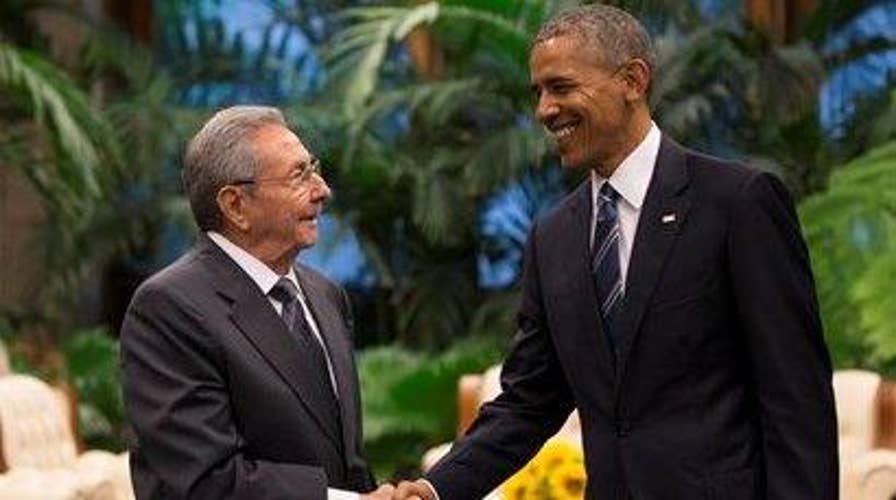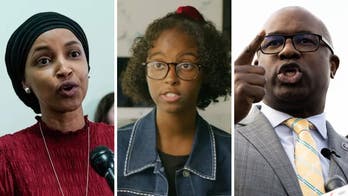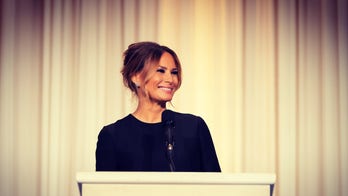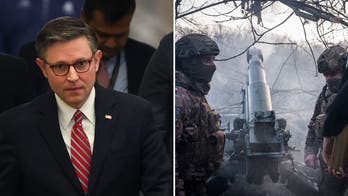Presidents Obama, Castro hold historic news conference
Reaction and insight from The Wall Street Journal's Glenn Hall
Cuban President Raul Castro directly challenged President Obama on the heels of their historic meeting in Havana Monday to lift more restrictions on the island and return land used for the U.S. naval base at Guantanamo Bay – as the visiting U.S. president, in turn, chided the Cuban government on democracy and human rights.
The remarks, by turns tense and cordial, came during a joint press conference with the two leaders in Havana. The comments reflected the lingering and deep divides between the two countries, even as Obama tries to use his historic visit to forge renewed ties with Cuba after a decades-long freeze.
"This is a new day," Obama said, standing alongside Castro after their meeting at Havana's Palace of the Revolution.
In his opening remarks, Castro praised Obama's recent steps to relax controls on Cuba as "positive." But he also deemed them insufficient, calling anew for the U.S. to return its naval base at Guantanamo Bay to Cuba and to lift the U.S. trade embargo.
"That is essential, because the blockade remains in place, and it contains discouraging elements," Castro said.
Castro, under questioning, also was defiant on the issue of political prisoners. Asked about them by an American reporter, Castro told the reporter to provide a list of those prisoners and he’d release them by the end of the night.
He added later, "It's not correct to ask me about political prisoners in general."
After responding to a handful of questions, Castro ended the news conference abruptly, declaring, "I think this is enough."
The White House previously has said it has no plans to return the Guantanamo land, though Obama wants to shutter the detention camp there. When asked on Feb. 29 on ruling out the possibility about returning the land to Cuba, Defense Secretary Ash Carter reiterated the U.S. position.
“It's a strategic location, we've had it for a long time, it's important to us and we intend to hold onto it,” he said.
As for the embargo, Obama noted the embargo has not at this stage been repealed by Congress but said it will eventually end.
Obama, in his remarks, also thanked Castro for a “spirit of openness.”
He said they had a “frank and candid” conversation on human rights and other topics. While saying “Cuba is sovereign,” he added: “At the same time, as we do wherever we go around the world, I made it clear that the United States will continue to speak up on behalf of democracy … we’ll speak out on behalf of universal human rights.”
Earlier Monday, Obama and Castro sat down at the Palace of the Revolution after shaking hands and greeting each other during a brief ceremony, which included the playing of both the U.S. and Cuban national anthems.
The glaring question for Cubans, though, was whether their own government is ready to prove the ambitious diplomatic opening is more than just talk.
American companies, eager for opportunities in Cuba, were wasting no time. Obama announced that tech giant Google struck a deal to expand Wi-Fi and broadband Internet on the island 90 miles south of Florida.
"The time is right," Obama told ABC News. "We felt that coming now would maximize our ability to prompt more change, particularly because this has been welcomed by the Cuban people with enormous popularity."
Obama opened his first full day in Cuba by adjusting a wreath at the memorial to Jose Marti, where a 59-foot statue pays tribute to the Cuban independence hero and writer. Hand on his heart, Obama stood in Revolution Square as a band played the American national anthem -- stunning sounds in a country where resistance to the U.S. has been part of the government's national mission for decades.
He then entered the Palace of the Revolution and shook hands with Raul Castro before the two inspected a military honor guard.
Since taking power in 2008, Castro has orchestrated economic and social reforms with lasting and broad-based impact, though to many Cubans and foreigners they appear slow to materialize. Not only are hundreds of thousands of Cubans now able to pursue free enterprise, but restrictions on cellphones and Internet have been eased and citizens feel more comfortable discussing Cuba's problems.
Yet Castro has given little ground when it comes to changing Cuba's single-party system or easing strict limits on media, assembly and political dissent. His government has also repeatedly chided Obama for saying he wanted to empower Cubans.
None of that has dissuaded Obama, who insists that any intransigence by Cuba's government only proves why Cubans will be better off when they're intimately exposed to American values.
Though Cuba approved U.S. hotel chains Starwood and Marriott to operate here and moved to lift fees on converting U.S. dollars, those steps pale in comparison to sweeping changes Obama has enacted to lift decades-old U.S. restrictions.
Back in the U.S., the president’s visit deeply divided lawmakers. While Obama has a huge congressional delegation with him, Cuban-American lawmakers in Washington slammed the visit. Florida Sen. Marco Rubio, who recently suspended his GOP presidential campaign, called it “one of the most disgraceful trips ever taken by a U.S. president anywhere in the world.”
GOP presidential front-runner Donald Trump also mocked Obama for not being greeted by the president of Cuba when he landed Sunday. Trump said Obama should have turned the plane around.
Obama, meanwhile, was to be feted in the evening at a state dinner, an honor illustrating just how far the U.S. and Cuba have come despite their deep ideological differences.
His visit was to continue Tuesday with a major speech that Cuban officials said would be carried on TV. Before departing for Argentina, Obama planned to meet with political dissidents and attend a game between Major League Baseball's Tampa Bay Rays and Cuba's beloved national team.
Fox News' Lucas Tomlinson and The Associated Press contributed to this report.





